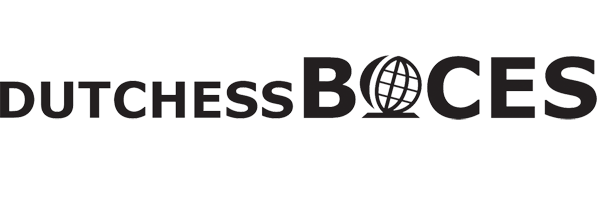![A PowerPoint Slide From The Inagural Dutchess BOCES Center for Educational Equity and Social Justice Conference [PIC] A PowerPoint Slide From The Inagural Dutchess BOCES Center for Educational Equity and Social Justice Conference](https://www.dcboces.org/sites/default/files/dcboces/images/equity/EdResourcesDCB_03_unity%20copy%202.png)
The Dutchess BOCES Center for Educational Equity & Social Justice hosted its inaugural event on May 12th. A group of 170 students and educators united for a full day of networking, conversation and learning.
“Designing Equitable Schools, A Youth and Adult Leadership Conference” provided both student focus sessions and educator/leader focus sessions. Students attended sessions with Cornelius Minor on “Navigating Gender, Race, Class & Ability in School and Community Spaces,” “Building real solidarity and unity at school,” and “Understanding & Action: What it Means to Be An Activist.”
Minor shared how his sister urged him to join women’s rights groups, despite it not directly effecting him. He encouraged students to do the same.
“You can learn so much more and you can become so much bigger if you join something that doesn’t benefit you directly,” Minor said.
Students also had opportunity to participate in focus groups with students from across the county. They shared their experiences in the areas of school culture and discipline, curriculum and course offerings, instructional practice, and student engagement
For some, curriculum was reflecting a diversity of opinion and topics, while others felt curriculum was outdated. Many indicted an interest in helping to select curriculum. Others indicted that they feel a tension when it comes to talking about sensitive topics that are often politicized.
“Schools should not be afraid about talking about sensitive subjects,” one student commented. “We are tiptoeing around them and they are not being talked about. Those are the things we need to be exposed to and be open about and talk about.’
Educators at the conference attended sessions that highlighted work Dutchess BOCES and some districts have been doing with Dr. Jevon Hunter on critical inquiry projects. In many cases teachers presented alongside their students, sharing projects they’ve worked on and how they have impacted student learning.
In one case a group of elementary students shared how they use a “report card” to determine who is represented in books in their library and how those in the books are represented, either positively or negatively.
“It was inspiring to hear such young children talk about how the project has changed the way they choose what they read,” said Cora Stempel, Deputy Superintendent.
BOCES Alternative High School teachers Michelle Santini, Richard Petschko and Dion King talked about the impact the COVID-19 pandemic had on students socially and emotionally. They shared haikus students wrote about hybrid learning and equity. Many students find it difficult to express themselves and the haiku project was a perfect way to do so, Petschko said.
“It is our hope that something inspires the participants to act and that they continue to engage with us throughout the coming years to help the Center actualize our mission,” Director of Educational Resources Jenny Schinella said.
Next steps for the Center include creating additional opportunities for students to network across the county, professional development and curriculum design sessions for teachers (happening this summer), technical assistance in examining Codes of Conduct (starting in the fall), and developing leadership strands.
“As a brand new Center, we’re gratified to have had the response we did to the Summit,” said Stempel. “We look forward to developing our programs further as we enter the new school year.”
